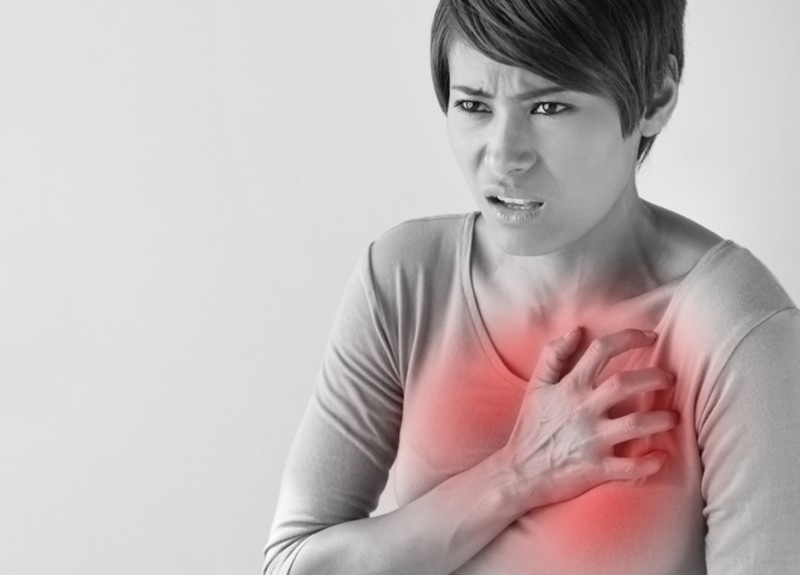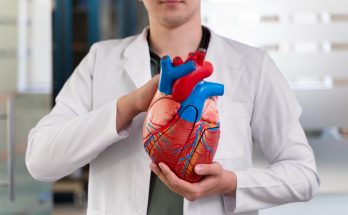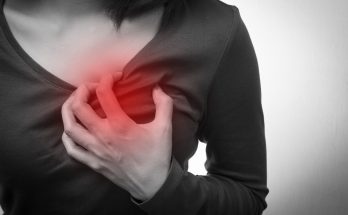The signs of the heart attack at its arrival are different in women as compared to that of men. Dramatic chest pain which is the most common symptom of heart attack is not the major clue always in women. Women are believed to have symptoms of the heart attack which may not be related to the chest at all.
The primary symptoms in women include nausea, jaw pain, sweating, and pressure. Most of the women brush off these symptoms thinking it to be an ordinary flu. The delay in recognizing the symptoms of heart attack can cost some one’s life for sure. Let us take a look at the subtle signs of the heart attack which should not be ignored.

Symptoms and warning signs of heart attack:
#1 Unusual fatigue
We always find women busy in household chores or performing other daily routine activities along with the work pressure. This hectic schedule makes women busy and tired most of the times. Tiredness up to a certain level is normal but pay attention to fatigue if it is new and dramatic.
For example:
- You start to suddenly worn out after your daily workout.
- Feeling heavy chest while performing work or at rest
- Experiencing sleep disturbance due to tiredness

#2 Pain in the upper back, shoulders, neck or jaw
Women experience constant pain in the upper back region of a body along with fatigue. Pain can also be felt in shoulders, neck or jaw. A woman may experience discomfort in the whole body.
#3 Shortness of breath- with or without chest pain
In most of the cases, shortness of breath is due to severe heart or lung conditions. The hearts and lungs in our body are involved in transporting oxygen to various tissues in our body and removing carbon dioxide. When the problem arises with heart, then this symptom comes up. Shortness of breath can be seen as a warning sign and can come up either with or without chest pain.

If the shortness of breath is being seen for weeks or longer, the condition is most often due to heart dysfunction.
#4 Flu-like symptoms: nausea, clamminess or cold sweats
- Women are more likely to experience this flu-like symptom involving neck pain, nausea, vomiting, extreme fatigue or problems with breathing. These symptoms are often accompanied by cold sweats when the condition is severe.
- Nausea is a feeling in which women will feel sick to their stomach. The reason behind this is the digestive system receives less blood, which causes a problem with digestion resulting in nausea.
- Clamminess, on the other hand, is a less common symptom. It is a condition in which the whole body of the patient is sticky and cold to touch. The patient feels cold in arms, legs, and hands. This condition can be due to poor circulation of blood.

#5 Abdominal Bloating: stomach pain
- Abdominal bloating is also a common sign which is seen in heart patients and most commonly women. It is due to the backup of blood and fluid in different parts of the gastrointestinal system that is in various parts of intestines.
- If the fluid backup is in the liver, abdominal swelling occurs which it makes tender.
- If it is in the stomach, it causes a decrease in appetite and mostly nausea.
- And if it is in intestines, it results in a bad absorption of medicines and food which prevents recovery.

Unique Risk Factors for Women
Most common risk factors for heart dysfunction are high blood pressure, increase in cholesterol levels and obesity. But the less common factors majorly for women are discussed below:
- If a woman is subjected to birth control pills or smoking, it will increase the risk of heart problems. If you are a smoker, you must consult your doctor before taking birth control pills.
- Family history also plays a key role in determining the risk rate for women.
Women subjected to stress and depression is more prone to get heart disease as compared to men. - After menopause, low estrogen levels can substantially increase the risk rate.Also Read: List of Food Items Good For Heart Patient
Not everyone experiences all of the symptoms, but if you feel chest pain or discomfort don’t wait for too long to call 911.




